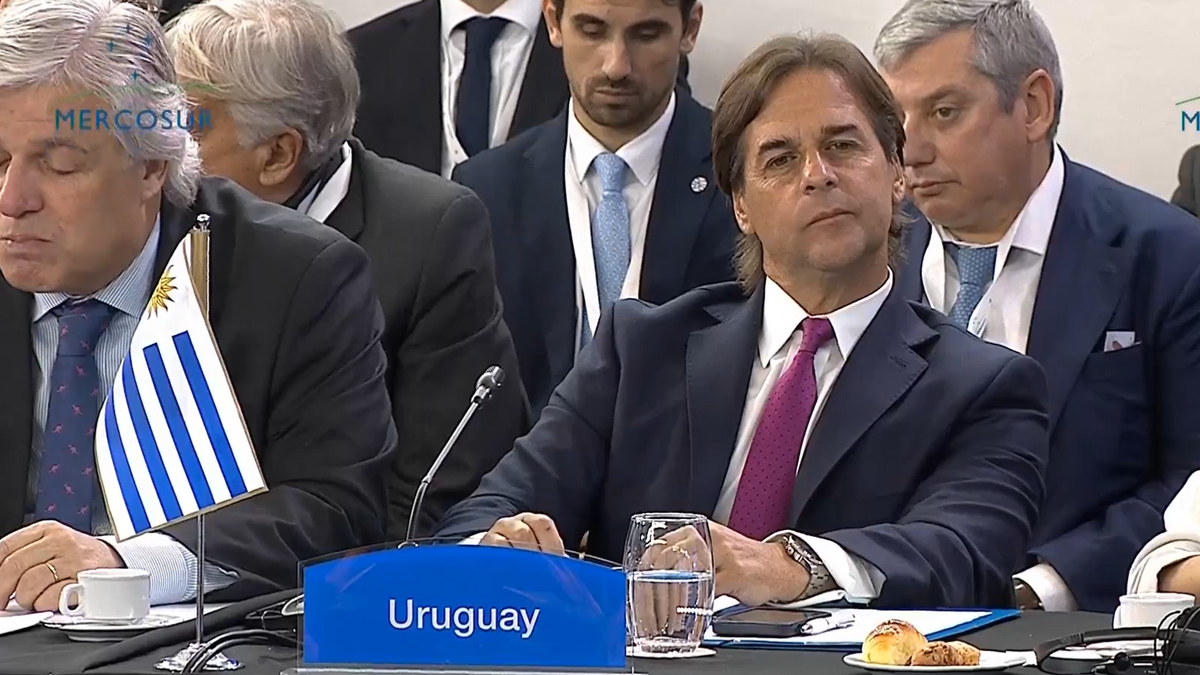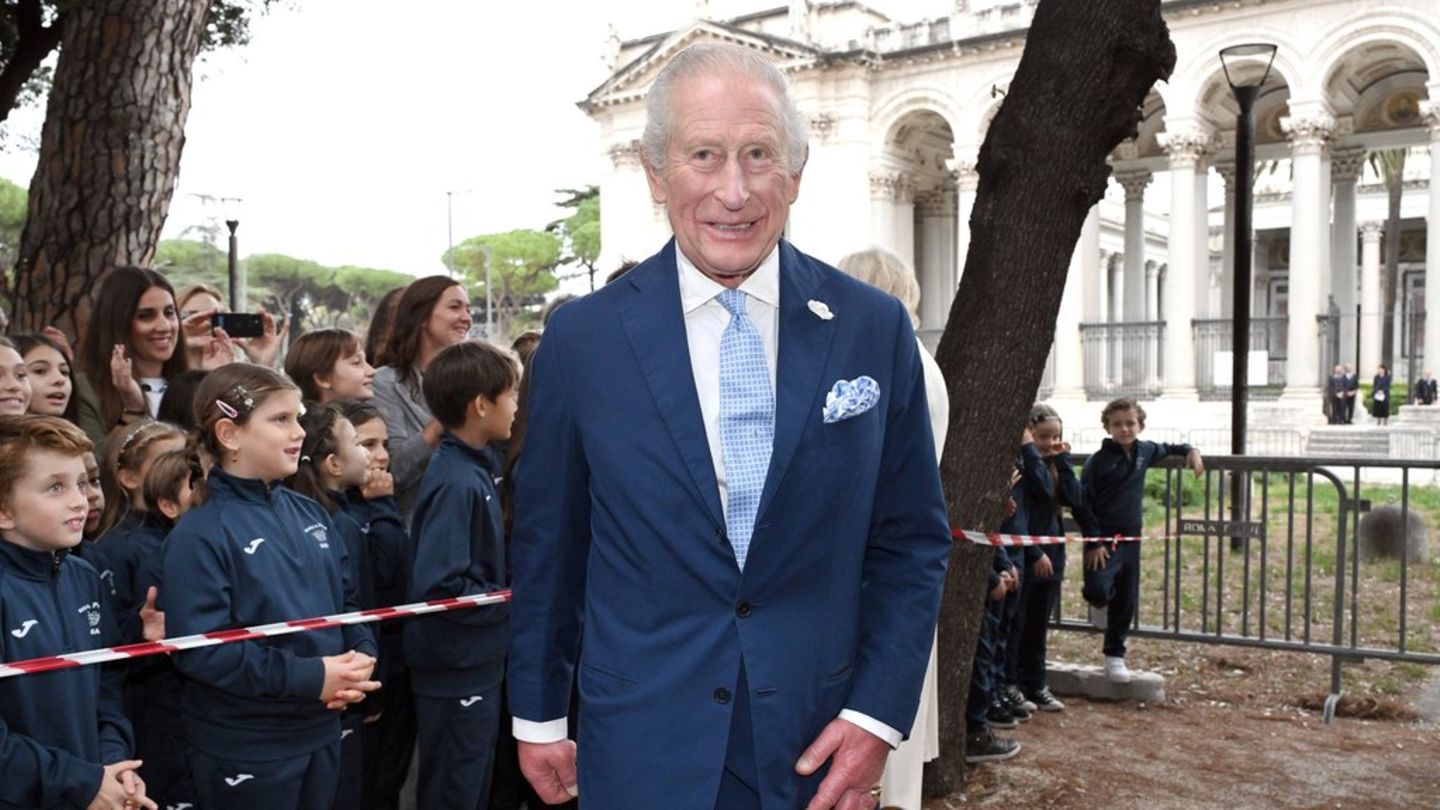President Luis Lacalle Pou will insist in his speech on the urgency of changing some of the premises held by the majority of the representatives of the Mercosur calling for greater flexibility and openness in treaties and insisting on advancing negotiations for a Free Trade Agreement (FTA) with China, although marked with a certain despair by an agreement with the European Union (EU).
The president is already in the Brazilian city of Rio de Janeiro, where the 63rd summit of the Mercosur and where the pro tempore presidency will be passed to the Paraguayan president, Santiago Pena. There, Lacalle Pou will persist in his speech with the idea of openness and flexibility of the Mercosur, a request that the president has been communicating for a long time, without obtaining support from any leader.
However, his speech will be marked by a certain hope of finding support in Argentina, marked by the change of presidential mandate that will take place in the neighboring country next Sunday between Alberto Fernandez and Javier Milei.
Despair over the agreement with the EU
At the meeting, the tension will be on the long-standing agreement between the South American bloc and its European counterpart, whose negotiations seemed on track weeks ago and became cloudy in recent days.
The escalation of tensions was initiated Macron, pointing out that it is something that “was negotiated 20 years ago, and that we tried to patch up, but it is poorly done.” Specifically, the president of France He focused on the fact that “it does not take into account biodiversity and climate.”
This statement was followed by the Argentine foreign minister, Santiago Cafiero, who assured that “the conditions are not met to sign the agreement,” because the European bloc did not give in to any of that country’s demands, mostly linked precisely to actions against climate change and its impact on exports.
Finally, his own Lula spoke out after a meeting he had with Macron and expressed: “If we do not have an agreement, be patient. It is not due to a lack of will. The only thing that has to be clear is that they no longer say that it is the fault of Brazil or because of South America“.
In that sense, yesterday Paganini spoke about it establishing that the “stagnation on the internal and commercial agenda” suffered by the Mercosur It is no longer due to a “temporary” factor, unfortunately, but rather to a cultural aspect. In that sense, he insisted that Uruguay does not believe that “the Regional integration and its commercial quality” is “good or bad by nature”, but depends on how it is applied: “And we conceive it as the foundation of a platform to go out into the world.”
“We believe in freedom of trade, which is an important dimension of people’s freedom. “It is the way to create value between the economies of the different states, allowing the flow of trade,” said the chancellor, and also added that it is a basic condition to achieve “investments and the improvement of economic competitiveness” of the countries.
China, a light of hope for Uruguay
The intention of Lacalle Pou at this summit, in addition to the signing of the agreement with the EU, was to propose to the other leaders a summit with his pair of China, Xi Jinping, to advance the negotiation of a free trade agreement (TLC), something that he anticipated after the signing of the strategic alliance, concluded last month.
“We are going to request a meeting of the heads of state of the Mercosur with the Chinese head of state,” the president anticipated and added: “If not, the technical services of the Mercosur meet with China, because there hasn’t been a meeting, it’s been a long time. And it is very important, China “He loves her and we have to try to push the envelope, because at some point this is going to happen.”
He was also accompanied by Paganini in his intentions, who in his speech yesterday insisted on the need to advance a process of making the bloc more flexible.
In this regard, the chancellor pointed out that in the Mercosur “today meaning prevails protectionist”. While since Uruguay The bloc is intended to be “the natural platform for insertion into the world,” allowing countries to negotiate without the endorsement of the partners at the same time as seeking a greater willingness to close new trade agreements.
“That is why we have to improve it, modernize it, provide it with greater agility, flexibility and execution. We want to take care of it, we want to develop it, so that it is not misunderstood,” Paganini emphasized regarding this “platform,” and making it clear that, at least for the moment, the government’s intentions have nothing to do with a break with Mercosur.
For the government, the ideal is that of open regionalism as the basis of the common project. “We have to be consolidated regionally,” she said, and pointed out as a positive example the agreement closed between Mercosur and Singapore for being “a modern, cutting-edge agreement.”
About the negotiations with China, Paganini maintained that “this position of my country to open up to the world is the product of the conviction of the entire national political and business system, it is a foreign policy of State”.
Source: Ambito




